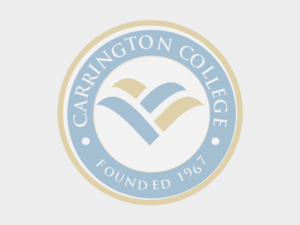 According to a new study conducted by the Journal of the American Medical Association, the diagnosis rate of HIV has fallen one-third over the last decade. It is estimated that over 35 million people are infected with the AIDS-causing disease globally, with over one million of those infected being in the United States.1 This expansive study utilized test results from the health departments of all 50 states, taking into account testing from a range of different medical institutions that includes clinics, hospitals, laboratories and doctors’ offices. Using 10 years of testing data gave researchers a more holistic view on HIV trends within the country, making this one of the most extensive studies of the disease in the United States to date.
According to a new study conducted by the Journal of the American Medical Association, the diagnosis rate of HIV has fallen one-third over the last decade. It is estimated that over 35 million people are infected with the AIDS-causing disease globally, with over one million of those infected being in the United States.1 This expansive study utilized test results from the health departments of all 50 states, taking into account testing from a range of different medical institutions that includes clinics, hospitals, laboratories and doctors’ offices. Using 10 years of testing data gave researchers a more holistic view on HIV trends within the country, making this one of the most extensive studies of the disease in the United States to date.
A drop in diagnoses
Research done by the Journal of the American Medical Association found, surprisingly, that while the numbers for HIV diagnoses decreased, numbers in testing have actually increased since 2000.2 According to the Centers for Disease Control and Prevention, 37 percent of adults were tested for HIV in 2000, while that number rose to 45 percent by 2010.3 While the study focused on HIV data from 2002-2011, the trend of increased testing overlaps. Though initially it might seem that higher testing rates potentially lead to a higher rate of diagnoses, there are several theories as to the decline. One of the main reasons for a decline in diagnoses is believed to be advances in treatment and awareness. Developments in medicine have been able to prevent HIV as well as slow down the onset of the AIDS virus. Another theory is that HIV is approaching a ceiling effect.4 The study found that the majority of groups saw a decline in diagnoses, including men, women, whites, blacks, Hispanics, heterosexuals and injection drug users.5 However, there was an increase in diagnoses amongst gay and bisexual men. The study attributes the increase in this group mainly to unprotected sex.
The potential for a cure
Scientists remain optimistic that there is a cure for HIV. Advancements in treatment have already shown that HIV no longer has to be a death sentence. Public figures such as Magic Johnson have coped with the disease for decades, thus increasing public awareness. One major development has been in gene therapy, in which scientists inject genetically modified cells that are resistant to the virus.6 This process requires bone marrow transplants, a risky procedure that cannot be done in all HIV patients. However, this method is still in the relatively early stages of testing. Antiretroviral therapy, often shortened to ART, is still the main method for keeping HIV under control. To date, a bone marrow transplant has only successfully eliminated signs of HIV in one person, Timothy Brown, sometimes referred to as the Berlin patient.7
Other recent developments
There are several other important recent developments in the prevention of HIV. The Centers for Disease Control and Prevention has recommended that those at high risk of contracting HIV can take pills that lower the chances of contracting the disease. Called pre-exposure prophylaxis, felicitously shortened to PrEP, this precaution has been shown to lower the risk of HIV by as much as 90 percent if used consistently.8 This could become an important element in a broader plan for remaining safe against HIV, but medical professionals emphasize not using this method as a primary prophylactic. HIV infects over 50,000 people in the United States each year. Regular condom usage, along with other safe sex practices, continue to be recommended for preventing the spread of HIV. Medical professionals recommend getting tested for STDs regularly and knowing the HIV status of both yourself and your partner(s). An Australian bio-tech firm has recently developed a condom that effectively deactivates 99.9 percent of HIV, herpes and human papilloma virus cases.9 The firm, Starpharma, have developed an antiviral gel in the condom’s lubricant, which works to kill the sexually transmitted diseases. Though the product is waiting on some regulatory approval, the VivaGel condoms are expected to be on shelves in Australia in months.
On a global scale
This latter development is especially important to the Australian population, as the country has seen a recent rise in sexually transmitted diseases, notably HIV and herpes. On a global scale, while there has been a drop in HIV diagnoses in the U.S., countries in Africa have continued to be plagued by the disease. It is estimated that more than two-thirds of HIV sufferers worldwide live in sub-Saharan Africa.10 HIV continues to be a global epidemic, and research moves forward seeking a cure. The particular challenge HIV presents is that small levels of the virus are as of now impossible to detect in the human body, so when treatment seemingly eliminates the disease, it can resurface after a period of dormancy. It is for that reason that it is important to continue raising awareness of preventative measures worldwide. 1“HIV diagnosis rate in U.S. declines significantly” CBS News. July 21, 2014. http://www.cbsnews.com/news/hiv-diagnosis-rate-in-u-s-declines-significantly/ 2“HIV diagnosis rate in U.S. declines significantly” CBS News. July 21, 2014. http://www.cbsnews.com/news/hiv-diagnosis-rate-in-u-s-declines-significantly/ 3“HIV/AIDS Fact Sheets” Centers for Disease Control. http://www.cdc.gov/hiv/library/factsheets/index.html#testing 4“HIV diagnosis rate in U.S. declines significantly” CBS News. July 21, 2014. http://www.cbsnews.com/news/hiv-diagnosis-rate-in-u-s-declines-significantly/ 5“HIV diagnosis rate in U.S. declines significantly” CBS News. July 21, 2014. http://www.cbsnews.com/news/hiv-diagnosis-rate-in-u-s-declines-significantly/ 6“HIV gene therapy using GM cells hailed a success after trial” by Ian Sample. The Guardian. March 5, 2014. http://www.theguardian.com/science/2014/mar/05/hiv-gene-therapy-gm-cells-trial-success 7“HIV gene therapy using GM cells hailed a success after trial” by Ian Sample. The Guardian. March 5, 2014. http://www.theguardian.com/science/2014/mar/05/hiv-gene-therapy-gm-cells-trial-success 8“CDC recommends pill to protect against HIV” by E.J. Mundell. CBS News. May 15, 2014. http://www.cbsnews.com/news/cdc-recommends-pill-to-protect-against-hiv/ 9“First condom designed to kill HIV ‘could be available to buy within months'” by Lizzie Parry. Daily Mail. July 21, 2014. http://www.dailymail.co.uk/health/article-2699944/World-HIV-killing-condom-available-buy-months.html 10“Wives Hide HIV as Stigma Undermines Progress on AIDS” by Jason Gale. Bloomberg. July 21, 2014. http://www.bloomberg.com/news/2014-07-20/wives-hide-hiv-as-stigma-undermines-progress-on-aids.html



